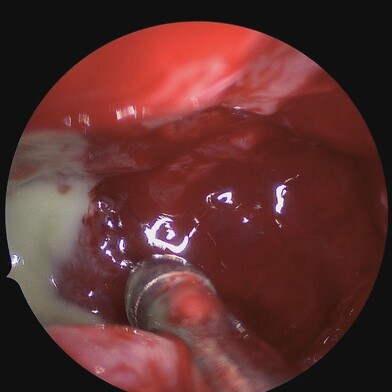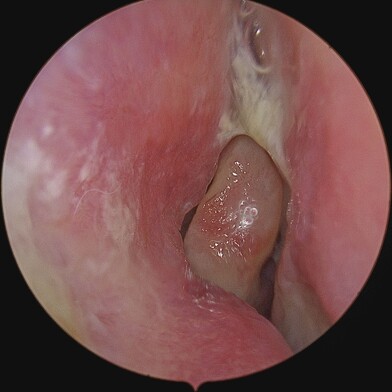Sinus Pathology
Rhinosinusitis
Acute Sinusitis / Rhinosinusitis is typically caused by a bacterial infection following a viral upper respiratory infection (common cold). It causes inflammation of the sinus lining, leading to symptoms such as facial pain or pressure, nasal congestion, thick nasal discharge, and a reduced sense of smell.
On the other hand, Chronic Sinusitis / Rhinosinusitis (CRS) is an inflammation and swelling of the sinus lining lasting longer than 12 weeks, often associated with persistent symptoms despite treatment. It can be caused by infections (bacterial / viral / fungal), allergies, environmental irritants like pollutants, anatomical abnormalities (e.g. nasal polyps) or autoimmunological factors. Patients with CRS display symptoms associated with the acute type along with headaches, a diminished sense or loss of smell (Hyposmia or Anosmia), or post-nasal drip.
Diagnosis & Treatment
Diagnosing chronic rhinosinusitis involves a comprehensive evaluation, which may include medical history and physical examination, nasal endoscopy, imaging studies, allergy testing, and conducting nasal and sinus cultures.
Treatment can be initiated with regular medications like nasal steroid sprays, anti-histamine tablet and sprays, antibiotics, nasal saline sprays, or oral corticosteroids. But specific problems causing rhinosinusitis may be treated with Functional Endoscopic Sinus Surgery (FESS).


